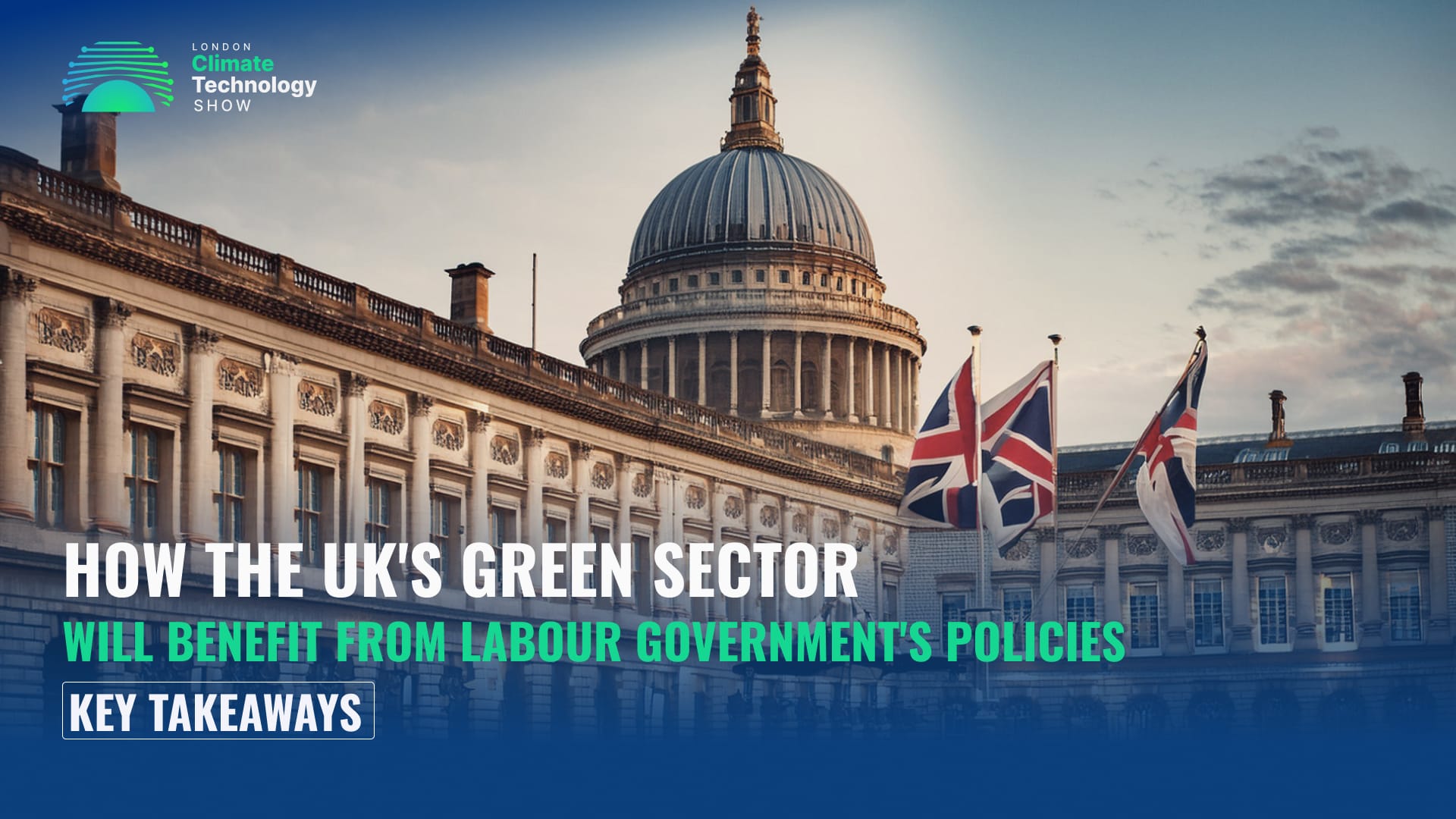The UK stands on the brink of a green transformation, driven by the Labour government’s ambitious policies. According to the Labour Manifesto, the clean energy transition represents a massive opportunity to stimulate growth, address the cost-of-living crisis, and achieve energy independence for Britain. The Labour government aims to decarbonise the UK power system by 2030, that is five years ahead of the previous government's target of 2035.
Sir Patrick Vallance, the former Chief Scientific Adviser during the COVID pandemic, mentions in the manifesto that achieving clean energy by 2030 is feasible if Britain approaches this goal with the same urgency as the “vaccine challenge.”
To achieve this, the Labour government plans to collaborate with the private sector to double onshore wind, triple solar power, and quadruple offshore wind energy by 2030, alongside increased investments in CCUS, hydrogen, and marine energy. These initiatives, backed by a new Energy Independence Act, are set to transform the renewable energy sector and propel significant developments across the industry.
Here are the key takeaways on how the UK's green sector will benefit:
1. Significant Investment Surge
The Labour government aims to attract over £200 billion in private investment for renewable energy and climate tech projects. This substantial influx of capital is expected to create a significant increase in demand for innovative solutions across all sectors, offering businesses unprecedented opportunities to expand and scale their operations. The injection of funds will not only support existing projects but also stimulate the development of new, cutting-edge technologies in renewable energy sector.
2. Establishment of Great British Energy (GBE)
A central element of the Labour government’s policy is the establishment of Great British Energy (GBE), an initiative designed to bring control of British energy back to Britain. This state-owned entity will invest in new technologies and collaborate with various industries, including energy, manufacturing, technology, and local authorities. By advancing community projects and decentralising energy systems, Great British Energy will facilitate collaborations and joint ventures, fostering a conducive environment for business growth and innovation.
Described as a “green investment vehicle,” GBE aims to attract private investment and deliver energy security, cheaper energy, and new jobs, with an objective to achieve clean power by 2030. According to the Labour Manifesto, GBE will partner with industry to co-invest in leading technologies, support capital-intensive projects, and deploy local energy production.
3. Favourable Regulatory Framework
Labour’s commitment to achieving 100% clean power by 2030 ensures a favourable regulatory framework that supports project approvals and provides financial incentives. This regulatory framework will reduce barriers to growth for businesses in all sectors, particularly those in the climate tech and energy space. With £8.3 billion in state funding, Great British Energy will partner with industry and trade unions to co-invest in leading technologies, support capital-intensive projects, and deploy local energy production, with its headquarters in Scotland.
4. Strategic Funding Initiatives
Over the course of the parliament, Labour plans to allocate £7.3 billion to drive growth in green steel manufacturing, gigafactories producing EV batteries, decarbonising ports, carbon capture, and green hydrogen. For every £1 spent, Labour aims to attract £3 of private investment. This strategic funding approach provides businesses with the financial backing required for innovation and expansion, ensuring that the UK remains at the forefront of the global green economy.
5. Enhanced Investor Confidence
The scale of ambition and the promise of state support will be extremely attractive to investors, who feel a strong degree of certainty about backing UK projects. With clear policies and substantial government backing, the renewable energy and green tech sectors are poised for significant growth, making the UK a lucrative destination for green investments.
6. Sustainable Aviation Fuel (Revenue Support Mechanism) Bill
The Sustainable Aviation Fuel (SAF) Bill aims to support SAF production in the UK by providing revenue certainty to encourage investment in SAF plants across the country. The bill will create demand for SAF by setting targets on fuel suppliers to use a proportion of SAF, requiring suppliers to have at least 10% SAF in their fuel mix supplied to airlines.
Although this could be met with imported SAF, the government anticipates high demand and believes it prudent to ensure a supply of UK-produced SAF. The bill aims to increase the likelihood of SAF plants being built in the UK and secure a supply of SAF for the UK aviation sector.
According to the government’s background briefing document, the associated greenhouse gas emissions from using SAF are 70% less than fossil jet fuel on a lifecycle basis, and planes can already use up to 50% SAF under current rules.
The Labour government’s policies represent a bold approach to transforming the UK’s renewable energy sector. By leveraging massive investments, fostering collaboration, and providing a conducive regulatory environment, the Labour government is laying the groundwork for a sustainable and a Net Zero future. The initiatives led by the government address the urgent need for climate action while also positioning the UK as a global leader in renewable energy and green technology. Businesses and investors alike stand to benefit immensely from the opportunities presented by these futuristic policies, thus paving the way for a dynamic and thriving green economy.

